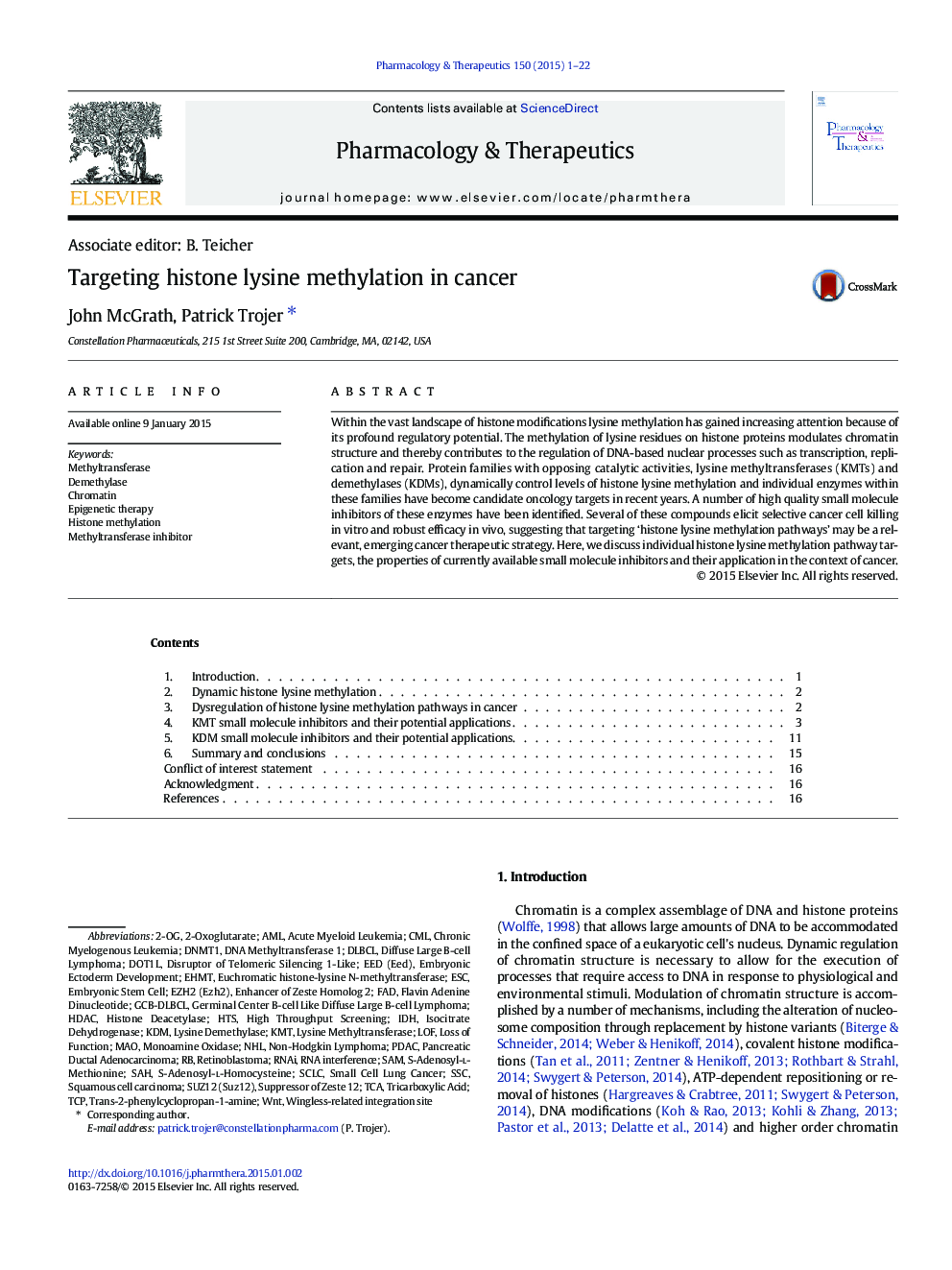| Article ID | Journal | Published Year | Pages | File Type |
|---|---|---|---|---|
| 2563088 | Pharmacology & Therapeutics | 2015 | 22 Pages |
Within the vast landscape of histone modifications lysine methylation has gained increasing attention because of its profound regulatory potential. The methylation of lysine residues on histone proteins modulates chromatin structure and thereby contributes to the regulation of DNA-based nuclear processes such as transcription, replication and repair. Protein families with opposing catalytic activities, lysine methyltransferases (KMTs) and demethylases (KDMs), dynamically control levels of histone lysine methylation and individual enzymes within these families have become candidate oncology targets in recent years. A number of high quality small molecule inhibitors of these enzymes have been identified. Several of these compounds elicit selective cancer cell killing in vitro and robust efficacy in vivo, suggesting that targeting ‘histone lysine methylation pathways’ may be a relevant, emerging cancer therapeutic strategy. Here, we discuss individual histone lysine methylation pathway targets, the properties of currently available small molecule inhibitors and their application in the context of cancer.
